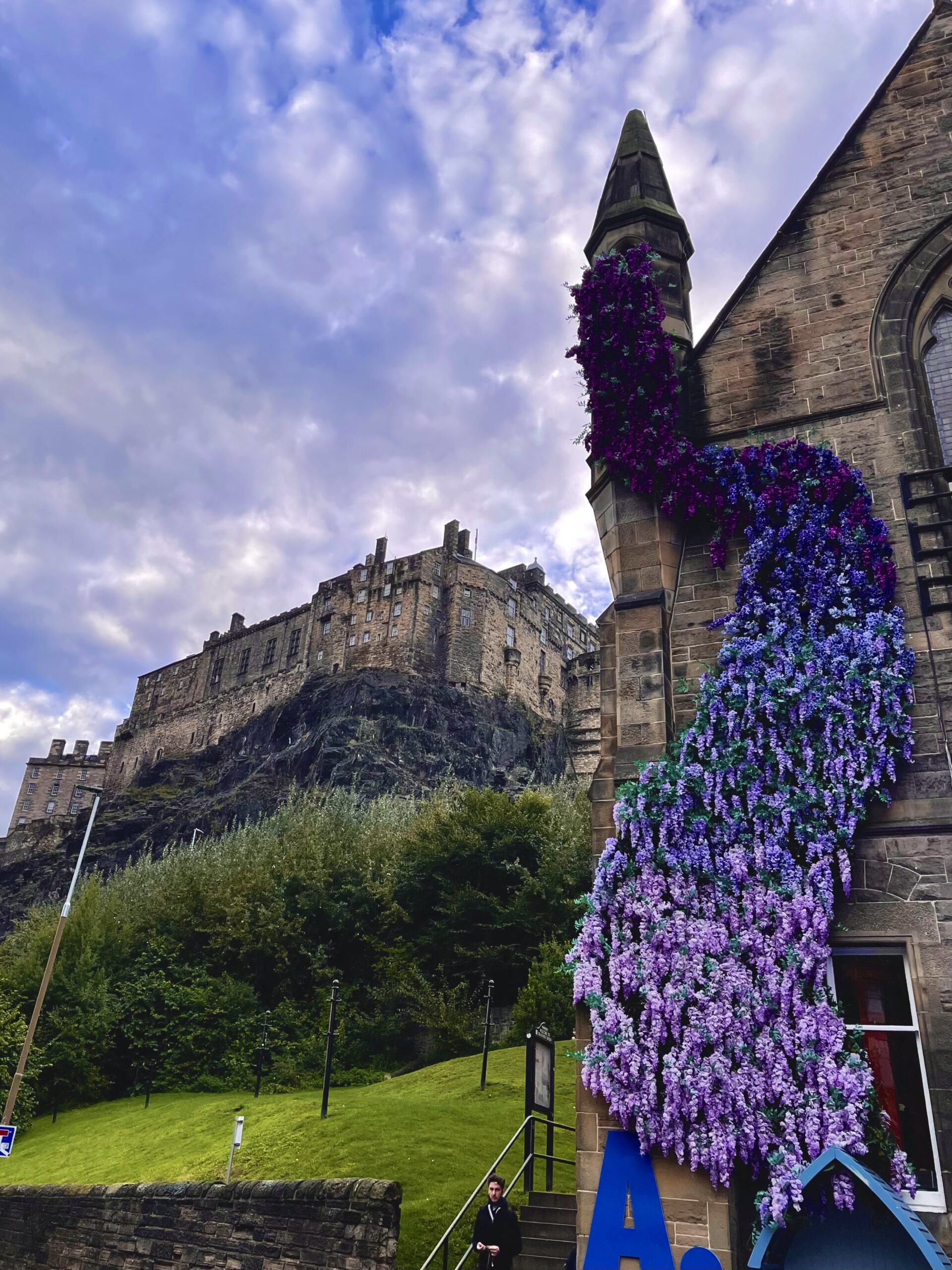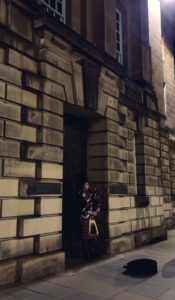Scotts and Greek Thracians


Discovering Similarities between the Scottish Past and My Own wile Studying Abroad
Dishes Not Meant for the Faint Hearted

My very first stroll around Edinburgh felt familiar. It happened on a random Sunday, in the middle of September, on a fittingly gloomy afternoon. While exploring Old Town, I came across a local pub and, as I was starving following my trip to Edinburgh and a long day of unpacking, I entered to grab a bite. On the menu, I saw a dish called ‘Highland Chicken’ which was stuffed with haggis. Having no idea what that was—yet utterly excited to try what appeared to be a traditional Scottish meal—I ordered it. Intrigued, I tasted what resembled a sort of savoury pudding consisting of sheep’s pluck. I was fascinated.
Back home, dishes of that nature are common. For example, we have a traditional Easter soup (mayiritsa) consisting of lamb offal and, more frequently, one might stumble across local shops that operate after hours and serve a soup made of pork leg and belly (patsas) to those in need of a guaranteed hangover cure following a Greek night out! Undeniably, all three would repel most people that are unfamiliar with their flavour and cultural background. Hence, you can imagine what I had to endure when trying to convince my foreign friends to give haggis a try (just so you know, they never did!). Nevertheless, I could not have asked for a better first contact with Scottish culture than a dish meant for Highlanders! With a full stomach, I then made my way towards the Royal Mile, unaware my heart was about to be even fuller.
Music Echoing from the Past

Walking towards the castle, I started hearing the distant melody of someone playing the bagpipes. I was with a classmate and remember turning to her with utter excitement, telling her we had to find where the music was coming from. She looked at me indifferently and wondered why I got so excited over bagpipes. She clearly thought my reaction was excessive and did not make sense of it. Taken aback by her comment, I explained that for the region I come from in Greece, bagpipes are a crucial element of our past, customs, and overall cultural identity.
Following the 1923 population exchange between Greece and Turkey and the subsequent re-establishment of ethnic borders, my ancestors forcibly walked all the way from Eastern Rumelia (a territory in today’s Bulgaria) to what is now my village, Trikala Imathias. The songs, attire, mannerisms, and idioms that define us to this day are rooted in our Thracian identity. Naturally, the bagpipes are an integral part of who we were and continue to be. I remember sending a video of the musician in his traditional kilt to my mother, in utter awe of the emotion evoked by his melodies. She then called me and, without any reason or warning, we both got emotional. This unique sound provoked a reaction in us, touching those parts of ourselves that are intimately tied to the pan-European past we share with Scotland. Echoing through Edinburgh’s most walked street, among buildings carrying hundreds of years worth of history, this music is capable of moving the hearts of even those oblivious to its background.
Embracing My Past Through Exploring the Scottish One

I am a Greek international student with a Thracian heritage. Yet, identifying as such in the U.S. never seemed to matter. My roots have always been a part of me I subconsciously celebrated only when being at home. Being surrounded by people with whom I share idioms, mannerisms, and an overarching approach to day-to-day life always managed to bring out that version of myself you can only achieve when at home—wherever or whoever home is to you. The emotions my very first stroll around Edinburgh sparked in me after a mere day came close to that. Yet, they could not have differed more from what defined my initial experiences in the U.S. Although I loved being in a foreign, filled with opportunities country at 18, fitting into its culture never truly felt attainable or, at least, something I could eventually achieve. I recognize that my prior, three-year course in the U.S. paved the way for me to be able to handle any challenges and face the unexpected with maturity and open mindedness. However, I cannot help but feel that, ultimately, there is something else connecting me to this place—something that was exemplified through my very first walk around this magical city.
While I have always felt that one must feel uncomfortable when learning, everything about studying abroad in Edinburgh thus far indicates the exact opposite. Up until now, contending with the discomfort that comes with living and evolving abroad is something I considered a reality I needed to accept. Since I do not plan on returning to my home country in the immediate future, I trained myself to try and make the best out of any given situation even if it never feels completely comfortable. My study abroad experience, however, made me realize it does not always have to be this way.
A perception I always took to heart before coming to Scotland was that the only place truly capable of making me feel at home was my country. Yet, studying abroad in Edinburgh proved there are always places one can find herself in that will eventually feel familiar, comfortable, and safe all at once; places that will not demand of you to relinquish parts of your true self in order to integrate in them. Who knows? If you can relate to my story, maybe finding the place where your soul and heart are at peace can be attained through studying abroad!
Eleni K.| Economics and Government major | Franklin & Marshall College | IFSA University of Edinburgh Partnership | Fall 2021